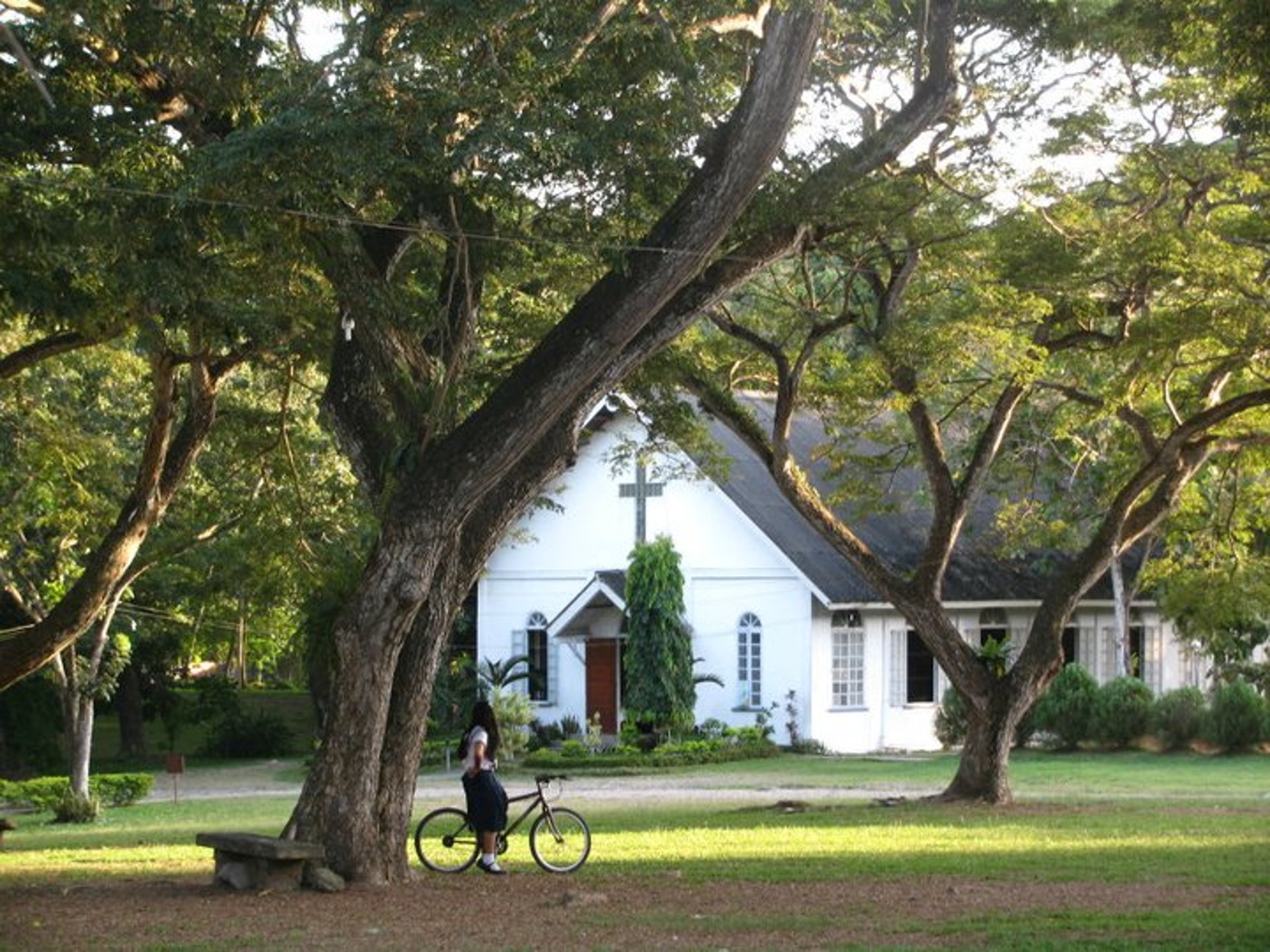Dreaming Words into Art: Writing Poetry on My Way to Adulthood
WRITING AT WORDHOUSE


Childhood Dream
As a child, I was asked the question countless times: "What would you like to be when you grow up?" It was a question that followed me through different stages of my life. The possibilities were endless, but the future was a distant dream.
When I went to school, the question carried more weight. Influences from family, friends, and the television began to shape my ideas of what I could become. In my teenage years, what I wanted to be when I grew up took on a new urgency. I wanted to discover my skills and weaknesses to form a clearer picture of what I could achieve. Early on in my junior year, I realized that I was too thin and light to become a volleyball player, too shy to sing and act on stage, too unbalanced to win the Chinese garter game, and too stiff to join a dance troupe. Although I was much of an introvert and given to scribbling, what I'd like to become remained vague and remote.
Finding Solace in a Poem
In high school, I passed a poem to my teacher in Filipino, who in turn, passed it on to the school paper. The school paper published the poem "Kapalaran", or in English, "Fate" and that was the first byline that hinted at a future career. Many years later, I will cite this first published poem at least two times. The first time was in a Creative Non-Fiction essay recounting my spiritual journey. That testimony for my MFA class essayed my entry into publishing, only by God's grace. With zero knowledge of what a book editor does, I worked as one for thirteen years.
The second time I alluded to "Fate" was in the introduction to my dissertation. The paper is a compilation of the poems I wrote and rewrote for more than thirty years starting from this first rhymed verse of my junior high school days.
A Segue into Theater
At sixteen, I was literary editor of ‘Advocate,’ the college school organ. The wordy Tagalog essay I submitted during the elimination earned me a reporter beat. By the early eighties, a chip on my shoulder was about the prestige that came with having 'intellectual' friends. Our hangout was the “press room”, and our “ding” word was “press freedom.” But, I failed to cover important current events. Always apathetic and apolitical, I wrote poems and essays instead, about my love life and my absent father.
My poetics had scant intellectual stimulation until I joined a theater group and became friends with stage performers. All the teledramas at the time were suddenly relevant as far as my literary education was concerned, at least, because theater people were always conscious of dialogue, and took notes of the elements of observed narratives in all accessible settings.
But my poetry got sidelined as I watched and cried over the travails of little Romnick Sarmenta in Gulong ng Palad, agonized over Julie Vega’s discrimination in Analisa, and sympathized with Janice De Belen’s misfortunes in Flordeluna. In Philippine pop culture at the time, Sharon Cuneta and Maricel Soriano lorded it over as teen idols and superstars. Among theater friends, we loved quoting long melodramatic lines from their movies.
Although I enjoyed the freedom of expression in the arts, I merely dabbled in any that was open to me. One thing never stopped, however. I wrote about myself all the time, scribbling all my thoughts in my diaries.
My Constant Companion
Diaries, I remember burning one that recorded all about an intense crush and throwing another that recorded another love story that did not end happily. There was a series of record books with red spines dated according to the moments covered. One long notebook was all about being an English teacher, busy and unsatisfied with all the lesson planning, reading, writing, lectures, and research. My years in boarding houses were witnessed by an assortment of spring notebooks that had some pages torn.
When I became more aware of the requirements of good and publishable writing, my diaries became messy. My constant companions, the notebooks were now less a storage of memories than they were worksheets for my drafts. One notebook was for brainstorming ideas, another was for my devotions and prayers, and one more small notepad was for my poems, to keep track of my attempts. The poetry notebook that has all my drafts and erasures testifies to the persistence of this desire to write poems.
Not Guilty of Not Writing
I have been a recorder of wisdom from my lived life. Certain wisdom remains abstract, and verses about them have to find their final expression in a structured poem. Hardly involved in any cause contributing to the preservation of the earth or world peace, I've often wondered about what my final poems should be about. Every story filtered from my experiences has eluded a telling in precise language and voice.
Maybe, I have written, but no, I have not published a book, which makes a lot of difference, especially in self-affirmation. I write poems in Tagalog, but my other works aren't poetry. Up to this late hour of my writer's journey, I have been working on two plays, one finished, one unfinished; one short romance novel in Filipino; two YA novels, one English and one Filipino; one novel in Tagalog, part one only; at least four short stories in Tagalog; one unfinished musical in Filipino; poems in Tagalog (only a few published), poems in English; essays; journals.
Writing has never stopped, but then again, I wanted to have a firm grasp of what I've recorded so far. So I collected my favorite poems. The published chapbook is called "Hugos", roughly meaning an 'avalanche of individuals on the streets'. The subtitle "Street Song" or "Awit ng Lansangan" captures the essence of every poem I've been attempting to write all these years.

